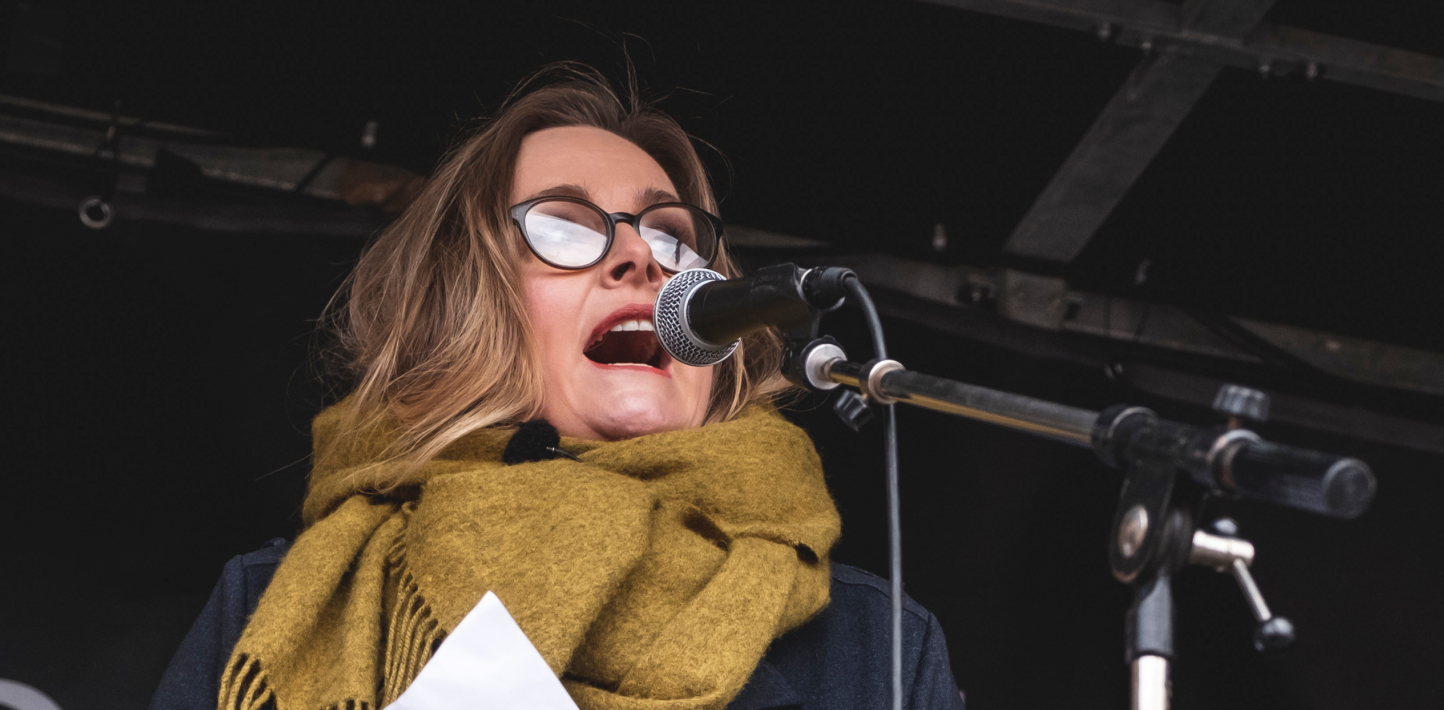Kirstine was determined to bring about changes to rape law and improve access to justice for rape survivors in Denmark. She knows what it’s like to come up against a justice system that is systemically set against someone who reports rape from the start.
“I will do everything in my power to use my own story to knock down walls so that in the future far fewer people find themselves in a situation where after having been through a terrible assault they also have to deal with a sceptical and unprepared reporting system, a judiciary based on ancient principles… and an outside world that just wants you to stay silent, put your head down and accept that the system violates and fails those that it is required to protect.”
The 39 year old journalist, communications adviser and activist reported a rape in 2017. The man accused was acquitted following a trial because rape could not be proven beyond reasonable doubt.
“I said ‘no’ many times, ‘stop’, ‘leave me alone’… It should be enough for me to say ‘no’. I should not have to fight him.”
But at that time the law in Denmark did not define rape based on the absence of consent; rather it based its definition on other factors, such as whether physical violence or the threat of force was used, if there was coercion, or if the victim was unable to resist.
Kirstine was asked by the police and in court whether she had resisted. Crucially, the justice officials focused their questions on seeking physical evidence that she had fought. They seemed less interested in whether she had said yes.
“I was never asked if I consented. Of course I didn’t.”
Kirstine had to make four attempts before she was able to file a report of rape with the police in August 2017.
She first phoned the police station in her home town and was informed that the report should be directed to a station in Copenhagen, where the events took place. An officer from the police station in Copenhagen informed Kirstine that there was no time to take her report as the officers were busy dealing with a lot of gang shootings and that it was important to make the report in person, so she should try her local station face to face.
At the local station the following day, a young male officer told Kirstine that she could go to prison if she was lying about having been raped and that there were a lot of false reports. After discussing her experience briefly with her, he told Kirstine that cases where alleged victims and the accused know each other rarely get anywhere He then proceeded to inform her that he was in fact unable to take her report as he had never done this before. He advised her to go to the police station in Kolding, a town around 20km away
Kirstine drove there, crying.
“If I was 20 years old, I wouldn’t have proceeded after the first attempt to report”.
Kirstine had to recount her experience several times: twice over the phone, another time in person in her home town, where the officer told her he was not going to take her report, and later at the station in Kolding and during several subsequent interviews in Copenhagen.
Stories like Kirstine’s make it suddenly very apparent why out of an estimated 5,100 to 24,000 women and girls affected by rape in Denmark in 2017, only 890 were reported to the police, with 535 of these resulting in prosecutions and only 94 in convictions.
Give us respect and justice when we say no to violence and abuse!
Kirstine
“If reporting a rape means enduring new fear, shame and humiliation, they can stick their campaigns to get us to report up their ass… I am an angry but determined woman. Give us respect and justice when we say no to violence and abuse!”
Sex without consent is rape.


